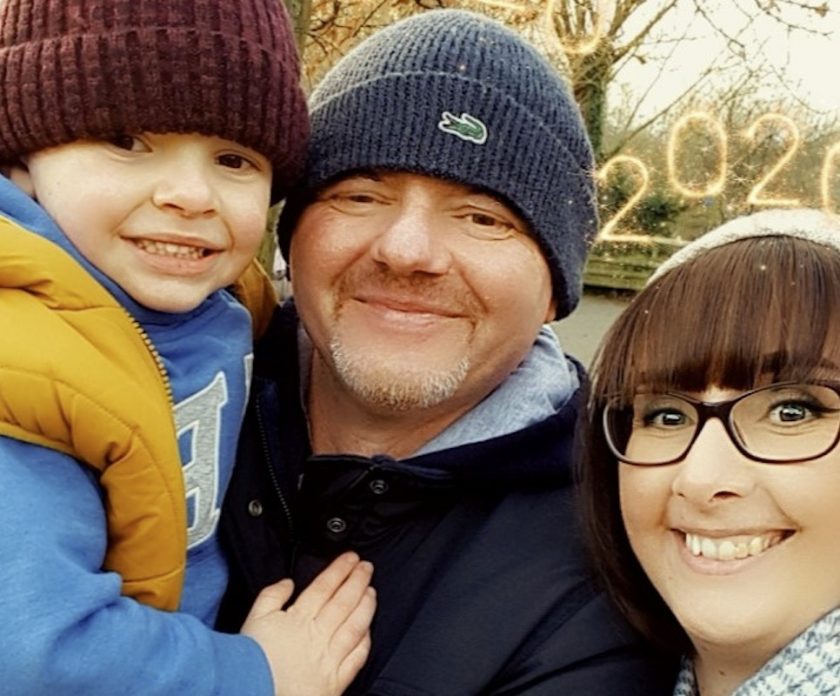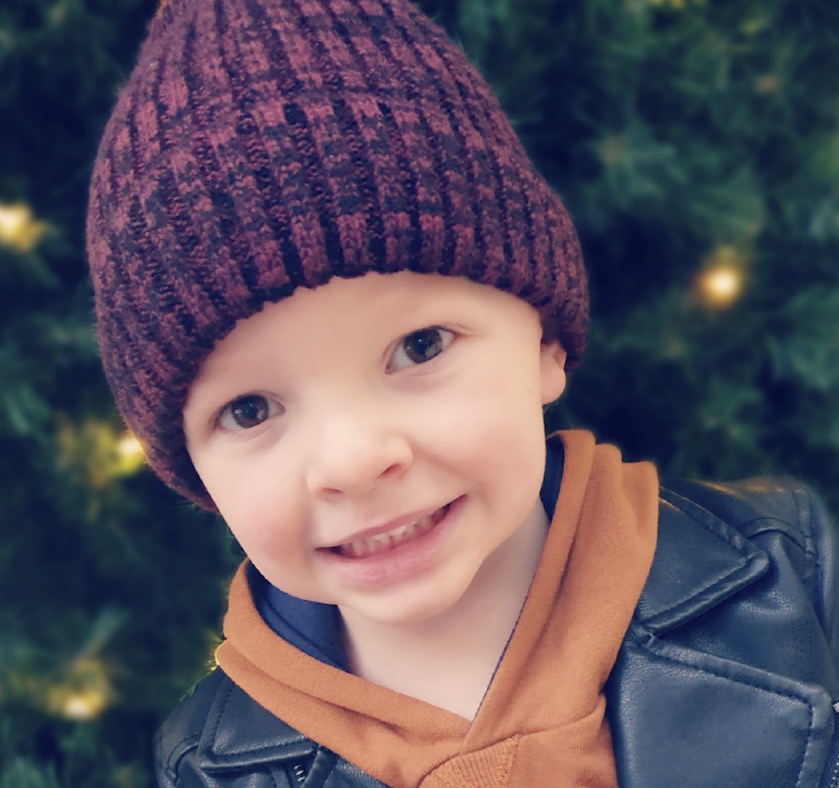Buckley mum calls for more research investment after young son diagnosed with aggressive and rare brain tumour

A mum from Buckley is calling for increased investment into brain tumour research after her five-year-old son was diagnosed with an aggressive and rare tumour.
Business analyst Nicola Wharton’s son Aaron, was diagnosed with an anaplastic ependymoma brain tumour in April last year.
Nicola, who lives with her husband Lee, a pharmaceutical lab supplier, said: “The first sign that something was wrong with Aaron was when he developed a droop on the left side of his face in April 2020. ”
“His beautiful smile looked lopsided. He was initially misdiagnosed with Bell’s Palsy but when his coordination started to deteriorate rapidly, further tests were carried out.”
After a series of MRI scans, Nicola and Lee were given the devasting news that there was a large tumour on the back of Aaron’s head.
Nicola added: “We were both distraught and upon hearing the words ‘brain tumour’, we automatically thought the worst.”
“We were told that the tumour was large and was in the posterior fossa. I was in utter shock. Lee broke down. I had never seen him cry before.”
On 17 April 2020, little Aaron had surgery to remove the tumour. Following the operation, the results from the biopsy showed the tumour was grade 3 (high-grade) anaplastic ependymoma.
Ependymoma brain tumours tend to be diagnosed in children around the age of five years old. ‘Anaplastic’ means the tumour is formed of cancer cells that are dividing rapidly and have little or no resemblance to normal cells.

Nicola said: “When we found out it was aggressive and rare, we soon became very conscious of the stark prognosis. ”
“Aaron had to undergo a gruelling 6.5-week course of proton beam radiotherapy, to try to prevent the tumour from growing back.”
Aaron suffers with some long-term side effects of his treatment, including short-term memory loss, low energy levels and sensitivity to loud noise.
He continues to be monitored with MRI scans every three months.
Nicola added: “It’s a year since our nightmare began and to think that someone as small as Aaron could go through what he’s endured, is inconceivable.”
She is among more than 112,000 people who have signed a Brain Tumour Research petition calling on the UK government to introduce a new levelling up brain tumour research fund of £105 million.
Nicola said: “I am supporting the petition as I struggle to comprehend why there isn’t more funding into brain tumour research, especially when you consider that the disease kills more children and adults under the age of 40 than any other cancer.”
“I seem to be hearing of more and more cases of brain tumours, yet funding levels remain drastically low. I am committed to helping to raise awareness of the issues surrounding brain tumours, having experienced first-hand the devastation they cause.”
A report being circulated to MPs today (Thursday 15 April) highlights the fact that brain tumours kill more children and adults under the age of 40 than any other cancer.
Historically, just 1% of the national cancer spend has been allocated to this devastating disease.
The charity says that since 2002, when cancer spend records began, £680 million has been invested in breast cancer while just £96 million has been spent on researching brain tumours; a difference of £35 million a year over 17 years. This disparity continues with brain tumour research spend continuing to receive £35 million a year less over the last three years.
Sue Farrington Smith MBE, Chief Executive of Brain Tumour Research, said: “My sister’s little girl Alison Phelan was diagnosed with a brain stem glioma (DIPG) brain tumour in August 2000. Ten months later we lost her, in June 2001, three weeks before her eighth birthday.
“Twenty years on and the fate of adults and children diagnosed with these tumours has not improved – in fact the five-year survival rate has fallen to just 12%.
What’s more, people diagnosed with low-grade tumours that become aggressive over time live with a ticking time bomb, not knowing if or when their tumour might become a lethal grade 4.
In the meantime, they endure sometimes multiple surgeries, chemotherapy and radiation therapy. They can suffer changes in personality and more and more disabling impacts, and their loved ones’ lives and livelihoods are changed forever as they become carers.
“These families do not have time on their hands – do we really need to continue the existing rhetoric that has failed them for a generation and wait another 20 years before a cure is found?
These families need a cure now, they don’t want to be told by their clinician to go and make memories, they deserve to be told what the treatment options are, treatments that will extend their loved ones’ lives by more than mere months.
“Now is the time to give hope to the thousands of families impacted by a brain tumour every year. Along with more than 112,000 people, I am calling on the Government to make this the time to level up and stop the devastation.”
Spotted something? Got a story? Email: [email protected]
Latest News
